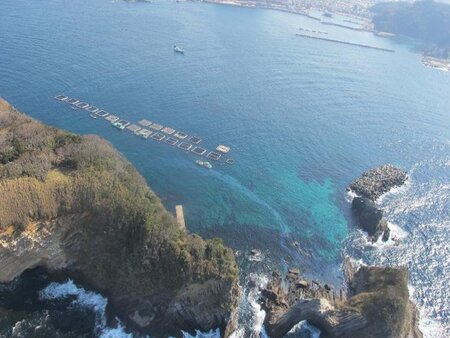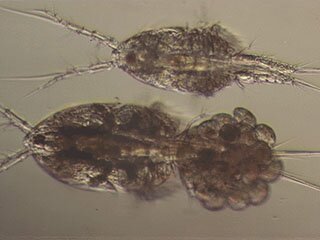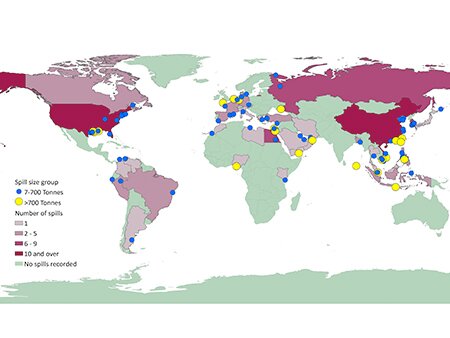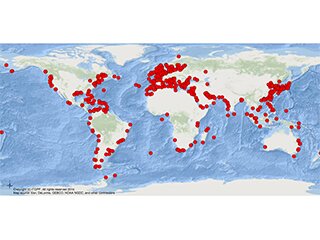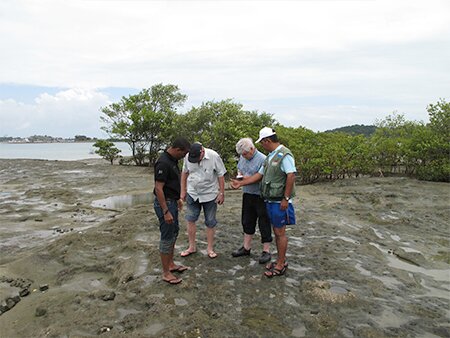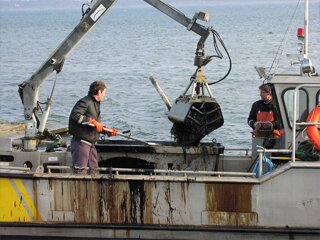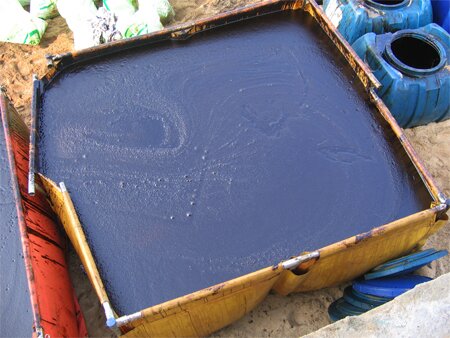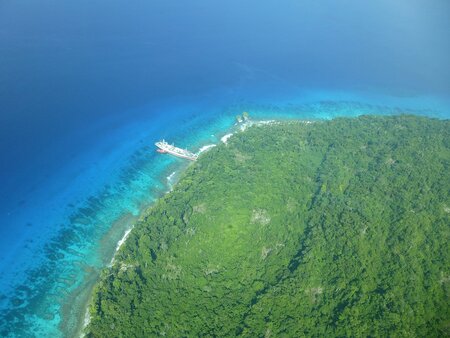Documents & Guides
Explore a variety of topics about marine spills, response and compensation matters in the pages below.
Each topic and area of interest provides access to more detailed documentation that is freely downloadable.
This includes our 18 Technical Information Papers which are fully illustrated with photos and diagrams and are available in several languages.
Alternative Fuels
What are the emerging alternative fuels and their associated risks, hazards, damages and liabilities?
Compensation for Ship-source Marine Oil Spills
What legal arrangements and sources of compensation are available for a spill from a ship?
Disposal
What planning and waste management systems need to be put in place to reduce the volume of oily waste for treatment or disposal?
HNS
What are the specific chemical response strategies for responding to a Hazardous and Noxious Substance spill, and what are the potential effects on human and marine life?
Contingency & Response Planning
What information is needed for an effective oil spill contingency plan? How can aerial observation and protective strategies assist with response operations?
Economic Effects
Which industries might suffer temporary economic losses and loss of market confidence?
Fate of Oil Spills
What happens to oil in the marine environment over time when spilled at sea? How do different factors such as volume and physical and chemical properties affect the fate of oil spills?
Explore the Resources
Response considerations when marine spills affect coastal agriculture (2017)
Using case studies of oil spills ITOPF has attended in Asia, Europe and South America, this paper will discuss these key considerations in turn, and describe, through the case studies, how they were resolved or addressed. This paper will also summarise the findings to provide general guidance for responding to oil spills where tidal agriculture is an important industry.
Categories: Economic effects, Papers
ITOPF R&D Award: A shipping industry's initiative to support research and development (2015)
ITOPF's shipowners and their P&I insurers have established the annual 'ITOPF R&D Award' to encourage organisations worldwide to inspire innovative thinking and to present ideas that could provide solutions to some of the challenges faced in spill response and environmental monitoring.
Categories: Training & Education, Papers
Trends in Oil Spills from Tankers Over the Past Ten Years (2015)
This poster presents the results of an analysis of various aspects of incident information for tanker spills seven tonnes and over within the past ten years (2005-2014).
Categories: Information Services, Papers
Visualising spill risk: Understanding and assessing regions of heightened vulnerability associated with increased seaborne transport of oil (2015)
Understanding and assessing the risk posed by oil spills is an essential starting point in oil spill prevention, preparedness, and response. However, it is a complex process and displaying results of a risk analysis can be particularly challenging.
Category: Papers
The ITOPF perspective on current challenges in responding to an oil spill in the Arctic (2015)
(Overheads only) Introduction to ITOPF; The Arctic and Northern routes;
Operational challenges and response options; Preparedness and capabilities;
Conclusions
Category: Papers
Are post-spill environmental studies becoming the norm? (2015)
This paper uses information from ITOPF attended incidents to look at trends in conducting post-spill studies, and offer a number of possible reasons for these trends; including a general heightened awareness of environmental issues leading to a shift in attitudes and expectations as well as legislative changes. The paper will also look at the implications of these trends for those involved with such studies and re-examine the ideal drivers for scientifically robust post-spill studies.
Categories: Environmental effects, Papers
Containment & Recovery of Oil Spills at Sea. Methods and limitations (1995)
The ultimate aim of any oil recovery operation at sea is to collect as much floating oil as is reasonably and economically possible. However, a review of past spills shows that rarely is more than 10% of spilled oil recovered from the sea surface. Although many methods of mechanical containment and recovery exist, each has its own limitations which affect the overall success of a recovery operation.
Categories: Containment & Recovery, Papers
Comparison and assessment of waste generated during oil spills (2014)
Experience has shown that the most time-consuming and costly component of a response to an oil spill is often the treatment or disposal of collected waste. The amount of waste generated is dependent on many factors, some which may be controlled more readily during the response.
DISCOBIOL: Assessment of the impact of dispersant use for oil spill response in coastal or estuarine areas (2014)
The DISCOBIOL research program aims to provide practical recommendations on dispersant use in coastal and estuarine areas by acquiring relevant (in terms of likely dispersed oil concentrations) and robust experimental information on the impact of mechanically and chemically dispersed oil on living resources.
Categories: Response Techniques, Dispersants, Papers
Applying international standards in response to oil spills in remote areas (2014)
This paper discusses the meaning of “international standards” for oil spill response in the context of remote operations. Practical examples are drawn from remote spills world-wide, including incidents in Tristan da Cunha, Madagascar, and Papua New Guinea.
Categories: Africa, Americas, Oceania, Planning & operations, Papers

